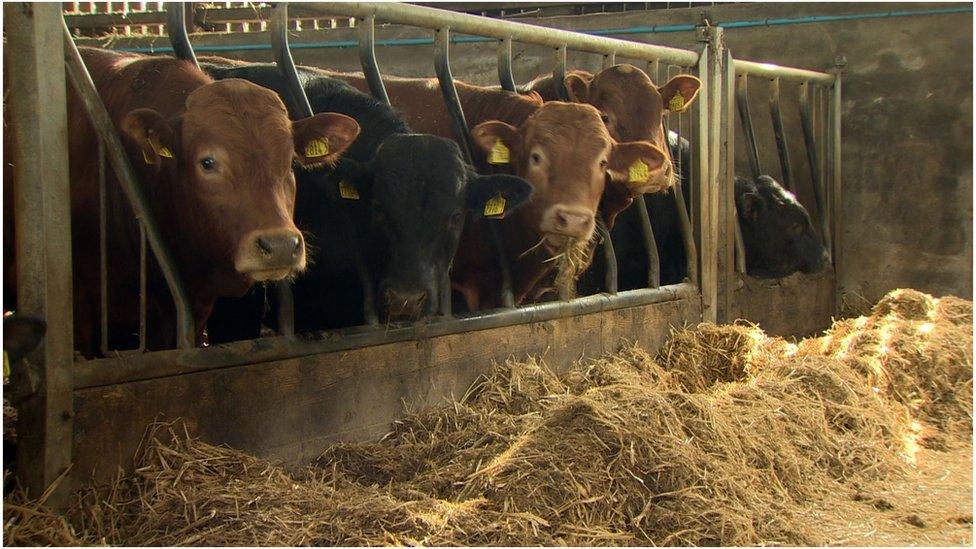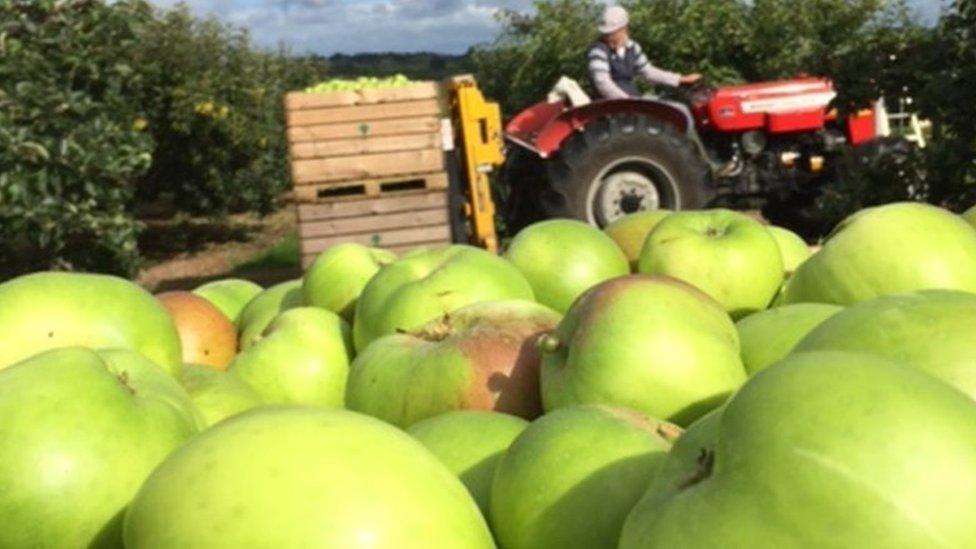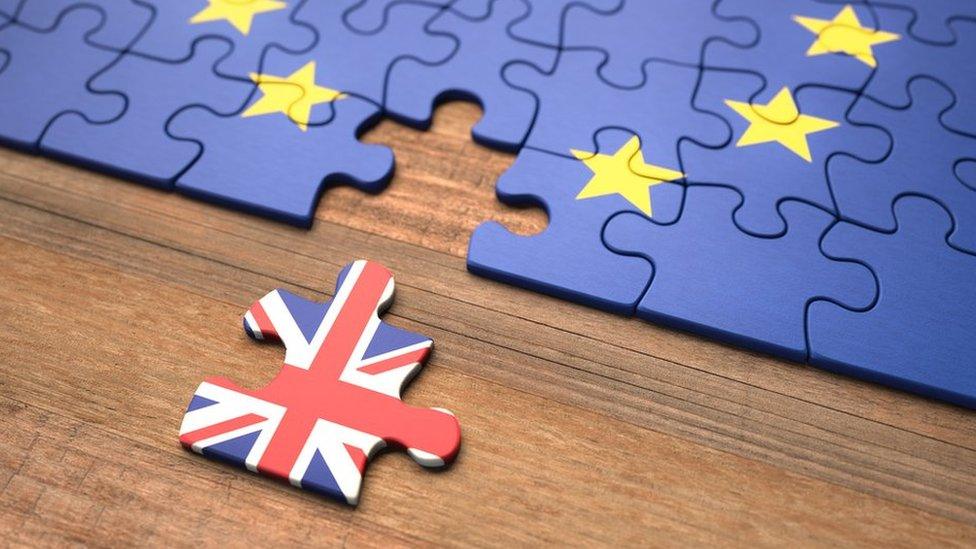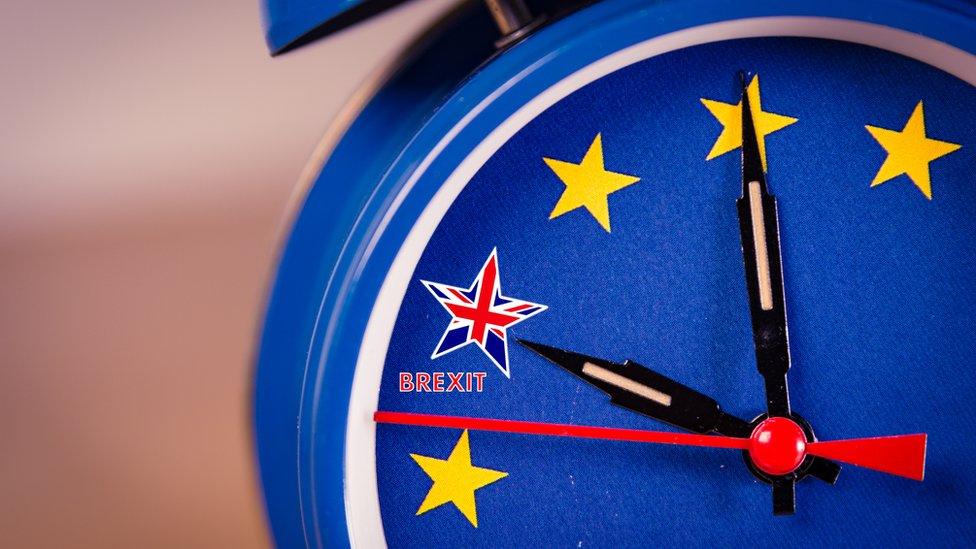Brexit: NI Agri-food industry cautiously welcomes deal
- Published

There has been a broadly cautious welcome from the NI agri-food industry to a UK/EU post-Brexit trade deal.
Food producers were already cushioned from the outcome of negotiations by a separate protocol on Northern Ireland.
It means NI will follow EU rules on goods and ensures relatively straightforward access to markets in Great Britain and the European Union.
That also resulted in additional complexities, extra paperwork and some physical checks on GB-NI imports.
'Significant milestone'
The wider trade negotiations were being closely followed because of their potential impact on patterns of trade which could have had a knock-on effect for local producers.
The Ulster Farmers' Union (UFU) said the deal was a "significant milestone" and the start of a challenging period for its members.
President Victor Chesnutt said one issue of concern was any future regulatory divergence between Great Britain and the European Union and how that might affect the rules applied to Northern Ireland produce.

Analysis
Agri-food is big business here and Brexit has been a major focus for it.
Its supply chains are complex and cross border, with material moving north-south and east-west as part of the manufacturing process
The Northern Ireland Protocol sorted many of the potential problems, guaranteeing access to UK and EU markets.
But neither it nor the wider UK-EU trade deal has eliminated all the potential frictions.
Some issues remain: the importation of breeding stock and seed potatoes, the inclusion of NI-origin milk in product made in Republic of Ireland dairies and supplied under EU trade deals to third countries.
That's why the welcome is cautious and the hope is the deal can be built on further.

The Northern Ireland Food and Drink Association said the deal took firms "away from the cliff-edge" and was preferable to a no-deal.
But its chair, Nick Whelan, said both the EU and the UK would have to work to address reduced choice and increased cost for local consumers as a result of new rules on Great Britain to Northern Ireland trade.

He called for an arbitration system to resolve disputes as firms got to grips with new systems.
"There will be errors and teething problems as we come to terms with new procedures and we want to minimise waste," he said.
Harry Wick of the Northern Ireland Fish Producers' Organisation said his members were glad to see the end of negotiations but would want time to study the detail of the deal.
Alan McCulla of the Anglo-North Irish Fish Producers Association said the deal would require "serious scrutiny" before judgment could be passed.
He said another negotiation would now have to take place about how additional UK quota would be shared out among UK-registered vessels and that would take some time.
- Published24 December 2020

- Published24 December 2020
